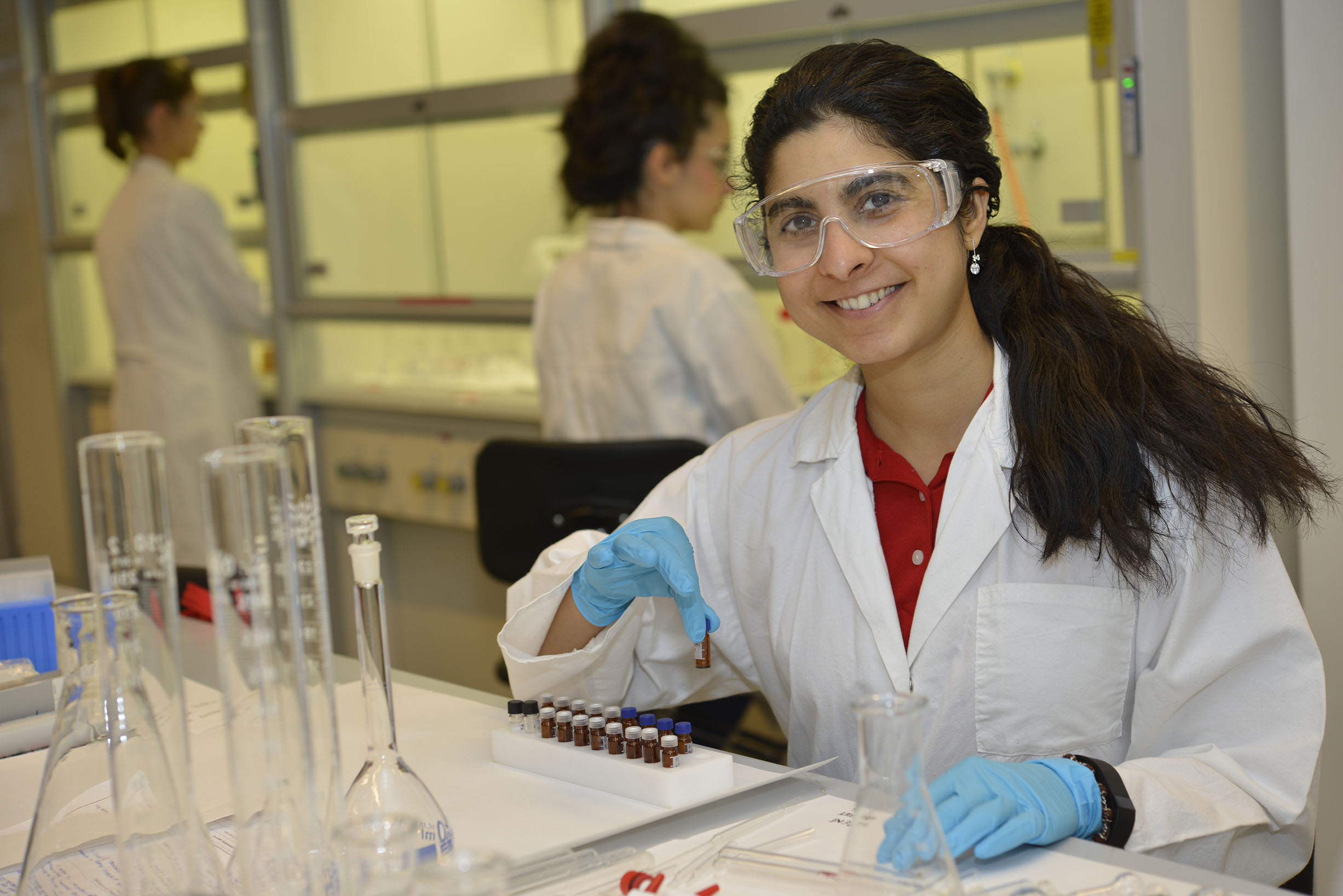A vegetarian with a PhD in fish

By: Per Haakon Stenhaug at Krüger Kaldnes: telephone +47 415 77 368
The Process Engineer Sharada Navada (30) does not eat fish but has recently completed a PhD in “salinity acclimation strategies for nitrifying bioreactors in recirculation aquaculture systemes”. Her sensational results have already been applied by the aquaculture industry.
Normally, the 30-year-old works at the Sandefjord-based company Krüger Kaldnes, which has been a strong contributor in the development of land-based aquaculture during the last 20 years. Among other initiatives, the company has been a supplier of a large selection of world leading technologies within RAS (recirculating aquaculture systems) for the land-based aquaculture industry. Now, the Norwegian company will be the first RAS supplier with an employee holding a PhD in what is professionally referred to as “salinity adjustment on Moving Bed Biofilm Reactor (MBBR)”.
Sharada Navada, who started working at Krüger Kaldnes i 2016, is originally from Mumbai, India, and also has a master’s degree in “environmental engineering” from Carnegie Mellon University in the US. She previously worked as a process engineer at Veolia in Pittsburgh before she became a part of Krüger Kaldnes, which is a Veolia subsidiary.
One year after she started working in Norway, she started her PhD dissertation in biological water treatment at the Norwegian University of Science and Technology (NTNU) in Trondheim. In February, she defended her dissertation brilliantly. Her PhD dissertation addressed technological and biological solutions for closed systems and Atlantic salmon farming.
Concerned with fish welfare
Ironically, Sharada Navada does not eat fish herself.
“I am a vegetarian and prefer the fish to be alive. Every day of research has made me fall even deeper in love with these fascinating creatures,” says the process engineer who emphasizes that this is why she finds research on water quality to improve fish welfare and sustainable fish farming so rewarding.
“I want the fish to have a good life. The demand for seafood is increasing, and non-sustainable fishing is emptying the oceans. RAS can represent a sustainable solution by producing seafood in land-based systems with water treatment and reuse,” says Navada, expressing gratitude for the support she has received from Krüger Kaldnes and the different supervisors on her way towards her PhD.
International recognition
Fish produce poisonous ammonia, and in land-based fish farming facilities, biofilters are used to reduce ammonia content in the water. The effect of the bio reactor can be reduced by the content of salt in the water. This can lead to ammonia poisoning or nitrite accumulation, and Sharada Navada’s dissertation addresses how to “mature” the bio reactor in the most optimal way in relation to the content of salt in the water, to ensure the best fish welfare. One of the questions she wanted to investigate was: How fast is it possible to change from freshwater to seawater?
Her research has received international recognition. Among others, the Managing Director of well-renowned Freshwater Institute (FWI) in Virginia calls this research very important:
“Sharada Navada’s research addresses a key challenge within land-based production of post smolt and salmon in harvest size within the RAS systems,” says the Managing Director of FWI.
Already applied
The PhD dissertation was part of CtrlAQUA SFI, Research-Based Innovation in Closed-Containment Aquaculture – and also the result of a collaboration between Nofima, Krüger Kaldnes AS and NTNU. Norfima, which conduct research on sustainable food, are world leading within Ras technology research. Centre Director of CtrlAQUA SFI and senior researcher at Nofima, Åsa Maria Espmark, characterises Navada’s dissertation and results as very important and directly beneficial to the environment of research and the industry as a whole.
“This field has been subject to some amount of guesswork earlier, and this is one of the first systematic works of research that has been conducted in this field. Several of Sharada’s results were ready a couple of years ago, and they have already been applied by Nofima and within the industry,” says the senior researcher.
A milestone
Head of HR and Communication Per Håkon Stenhaug in Krüger Kaldnes says that innovation and development constitute the very DNA of Krüger Kaldnes:
“As a leading RAS supplier, it is important to take responsibility for the development of the industry. Sharada and her research is important to Krüger Kaldnes, but it is even more crucial to the industry as a whole,” says Stenhaug.
Moreover, Business Development Manager Aquaculture in Krüger Kaldnes, Frédéric Gaumet who also holds a PhD in fish farming, is proud to include yet another PhD-holder on the Krüger Kaldnes team:
“Microbiota” is an important part of the correlation between water quality, fish health and biological treatment. Sharada’s work is a milestone in terms of understanding MBBR-adaptive capacities in challenging environments, specifically with regards to changes in salt containment. Her work is directly useful in both start-up of post smolt RAS systems, and in acclimatisation of bioreactors during production when salt levels are raised from freshwater to brackish or saltwater. Also, I am pleased to see that results and recommendations from her work has already been implemented by RAS suppliers such as Krüger Kaldnes, Innovation Institutes such as Nofima and a number of smolt producers,” says Gaumet.
READ MORE about the PhD dissertation at ntnu.no.

